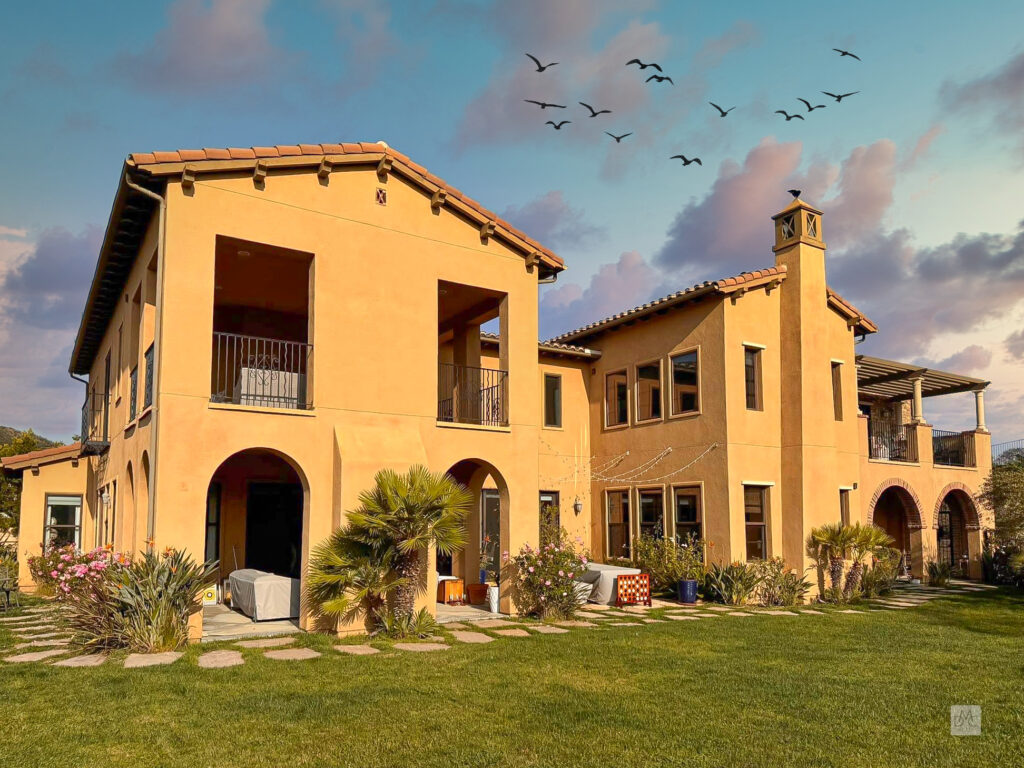Let’s start with an indisputable fact: Creating with AI can be fun! But straight to a point; in the world that I make my living as a real estate professional, I believe there are many doing themselves a disservice by an over reliance on AI to manipulate property images (often) to such a great degree that they no longer represent reality.
And speaking as a mildly talented photographer myself, I usually think the results look kinda silly.
I was recently participating in a forum discussion, wherein one of the moderators expressed amazement at how awesome of a job that ChatGPT did in helping him edit a real estate photo that he felt was bland.
Here was that (not at all terrible) image…

Now here was the image after the AI did its thing…

The audience response was mixed; with some finding the result displeasing, while many others were thoroughly impressed. I was firmly in the camp of dissent.
Shortly after expressing my opinion (that the manipulated pic was too dim & color graded in such a way as to create distrust in a viewer) someone said “let’s see you do a better job of manual editing with such ease!”
After spending 4 minutes manually editing the original pic, I inserted this into the conversation…

Of course, this image would not be exactly 100% photo-realistic either, but for several reasons that I won’t bore anyone with here, I’m confident that this version represents a much better image to use in an ad for a real estate listing.
None of this is news; for the AI backlash has already begun. In fact, policies have already been mandated by many various trades. For example, the Associated Press now requires their staff photographers and photojournalists upload story images (in the jpeg format) straight-out-of-camera to their servers, before any editing can take place. Again, they’ve done this because their stance is that transparency = reality = trust.
Now personally, I think that’s a step too far in the direction of a nanny state, but that’s a topic for another post. My point here is that the ‘uncanny valley’ effect creates distrust in a viewer, and that distrust is not what we should be promoting as the next great thing. I also believe it’s important to distinguish that those who possess a healthy sense of skepticism toward AI aren’t always (or exclusively) luddites.
For some of us, it’s simply a matter of ethics.
– Chad Meier
Living Room Realty
The post When Artificial Intelligence Isn’t The Smartest Option appeared first on Living Room Realty.
And speaking as a mildly talented photographer myself, I usually think the results look kinda silly.
I was recently participating in a forum discussion, wherein one of the moderators expressed amazement at how awesome of a job that ChatGPT did in helping him edit a real estate photo that he felt was bland.
Here was that (not at all terrible) image…

Now here was the image after the AI did its thing…

The audience response was mixed; with some finding the result displeasing, while many others were thoroughly impressed. I was firmly in the camp of dissent.
Shortly after expressing my opinion (that the manipulated pic was too dim & color graded in such a way as to create distrust in a viewer) someone said “let’s see you do a better job of manual editing with such ease!”
After spending 4 minutes manually editing the original pic, I inserted this into the conversation…

Of course, this image would not be exactly 100% photo-realistic either, but for several reasons that I won’t bore anyone with here, I’m confident that this version represents a much better image to use in an ad for a real estate listing.
None of this is news; for the AI backlash has already begun. In fact, policies have already been mandated by many various trades. For example, the Associated Press now requires their staff photographers and photojournalists upload story images (in the jpeg format) straight-out-of-camera to their servers, before any editing can take place. Again, they’ve done this because their stance is that transparency = reality = trust.
Now personally, I think that’s a step too far in the direction of a nanny state, but that’s a topic for another post. My point here is that the ‘uncanny valley’ effect creates distrust in a viewer, and that distrust is not what we should be promoting as the next great thing. I also believe it’s important to distinguish that those who possess a healthy sense of skepticism toward AI aren’t always (or exclusively) luddites.
For some of us, it’s simply a matter of ethics.
– Chad Meier
Living Room Realty
The post When Artificial Intelligence Isn’t The Smartest Option appeared first on Living Room Realty.
